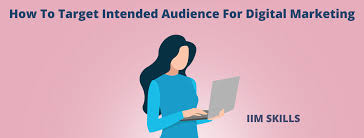Unlocking Success: Navigating Target Markets for Business Growth
Understanding Target Markets: Key to Business Success
In the world of business, identifying and understanding your target market is crucial for success. A target market refers to a specific group of consumers that a business aims to reach with its products or services. By defining and analysing your target market, you can tailor your marketing strategies and offerings to meet the needs and preferences of your ideal customers.
Importance of Identifying Target Markets
Identifying your target market allows you to focus your resources and efforts on the most relevant audience. By understanding the demographics, behaviours, and preferences of your target market, you can create targeted marketing campaigns that are more likely to resonate with potential customers.
Benefits of Defining Target Markets
- Increased Sales: By targeting a specific group of consumers who are more likely to be interested in your products or services, you can increase sales and improve overall profitability.
- Better Customer Engagement: Understanding your target market enables you to engage with customers more effectively by addressing their specific needs and concerns.
- Improved Product Development: By focusing on the preferences of your target market, you can develop products or services that are tailored to meet their expectations, leading to higher satisfaction levels.
Strategies for Reaching Target Markets
Once you have identified your target market, it is essential to develop strategies that effectively reach and engage with this audience. This may include creating targeted advertising campaigns, using social media platforms that are popular among your target demographic, or partnering with influencers who appeal to your ideal customers.
In conclusion,
Understanding and defining your target market is a fundamental aspect of any successful business strategy. By identifying who your ideal customers are and tailoring your marketing efforts towards them, you can increase sales, improve customer engagement, and develop products or services that meet the needs of your audience. Take the time to analyse and understand your target market – it could be the key to unlocking greater success for your business.
Understanding Target Markets: Common Types and Examples
- What are all the target markets?
- What are the 3 target markets?
- What are examples of target markets?
- What are the 5 most common target markets?
- What are the 4 target markets?
- What are examples of targeting market?
What are all the target markets?
The concept of target markets refers to specific groups of consumers that a business aims to reach with its products or services. There isn’t a definitive list of all target markets, as they vary depending on factors such as demographics, behaviours, and preferences. Identifying and defining target markets involves conducting market research to understand the characteristics and needs of different consumer segments. By analysing data and insights, businesses can determine the most relevant target markets for their offerings and tailor their marketing strategies accordingly. It’s essential for businesses to continuously evaluate and refine their target markets to stay responsive to changing consumer trends and preferences.
What are the 3 target markets?
When businesses consider their target markets, it is essential to understand that there is no one-size-fits-all answer to the question, “What are the 3 target markets?” The specific target markets for a business will depend on various factors such as industry, product or service offerings, and customer demographics. It is crucial for businesses to conduct thorough market research and analysis to identify and define their unique target markets accurately. By understanding the distinct characteristics and preferences of different customer segments, businesses can tailor their marketing strategies effectively and maximise their chances of success in reaching the right audience.
What are examples of target markets?
When considering examples of target markets, it is important to understand that they can vary greatly depending on the nature of the business and its offerings. For instance, a luxury skincare brand may target affluent women aged 30-50 who value premium quality and are willing to invest in high-end products. On the other hand, a fast-food chain may target young adults and families looking for quick and affordable meal options. Examples of target markets can also include niche segments such as eco-conscious consumers, tech-savvy millennials, or fitness enthusiasts. Identifying specific characteristics and preferences of your target market is essential for tailoring marketing strategies that resonate with the intended audience and drive business growth.
What are the 5 most common target markets?
When it comes to identifying target markets, there are five common segments that businesses often focus on. These include demographic targeting based on factors such as age, gender, income level, and education; geographic targeting that focuses on specific regions or locations; psychographic targeting which considers lifestyle, values, and interests of consumers; behavioural targeting based on purchasing habits and brand interactions; and finally, firmographic targeting which focuses on characteristics of businesses such as industry type and company size. Understanding these common target markets can help businesses tailor their marketing strategies effectively to reach their desired audience.
What are the 4 target markets?
When it comes to identifying target markets, businesses often wonder about the specific categories that define these groups. The concept of target markets typically encompasses four main segments: demographic, geographic, psychographic, and behavioural. These categories help businesses narrow down their focus to specific groups of consumers based on factors such as age, location, lifestyle preferences, and purchasing behaviours. By understanding and utilising these four target market segments effectively, businesses can tailor their marketing strategies to reach the right audience with the right message, ultimately driving success and growth in their respective industries.
What are examples of targeting market?
When considering examples of targeting markets, businesses often focus on specific demographics, such as age groups, income levels, geographic locations, or interests. For instance, a luxury skincare brand may target affluent women aged 30-50 who value premium beauty products. In contrast, a budget airline may target price-sensitive travellers looking for affordable flights within Europe. By identifying and understanding their target markets, businesses can tailor their marketing strategies and offerings to effectively reach and engage with the right audience for their products or services.











